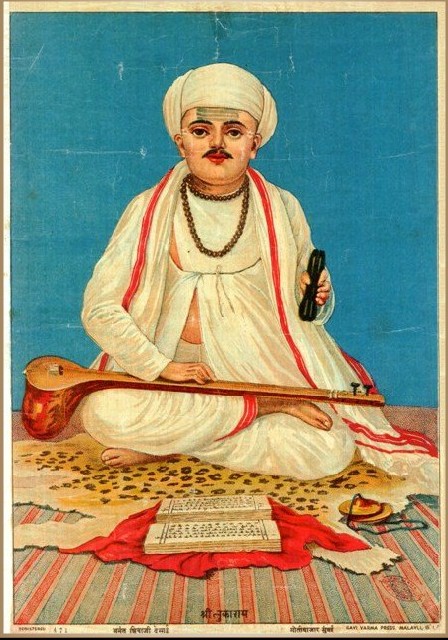News Highlights
The Prime Minister inaugurated Sant Tukaram Temple in Pune, Maharashtra.
About Shila Temple
- Situated in Maharashtra, the Shila Mandir is dedicated to Sant Tukaram.
- The temple consists of a stone (shila) slab on which Sant Tukaram meditated for 13 days.
- A new idol of Sant Tukaram has been installed in the temple near the shila.
- Devotees of Tukaram, the warkaris, offer prayers at the Shila Temple before starting their pilgrimage to Pandharpur in the Hindu months of Ashad and Kartik
Sant Tukaram
- Tukaram was a 17th-century Marathi poet, Hindu saint, and ardent follower of Lord Shri Vitthal
- He was a Saint of the Varkari sampradaya (Marathi-Vaishnav tradition)
- Early life
- Born in the Indian state of Maharashtra.
- His parents were devotees of Vithoba, an avatar of Hindu deity Vishnu (Vaishnavas)
- His guru was bhakti movement Saint Chaitanya Mahaprabhu.
- Later Life
- He spent in devotional worship, community kirtans (group prayers with singing) and composing Abhang poetry
- Philosophy and Practices
- Vedanta
- Tukaram considered his teachings to be Vedanta-based but lacking a systematic theme.
- Tukaram’s abhang opposes monism and advocates Indian scholars Madhvacharya and Ramanuja’s dualistic Vedanta theory.
- Kirtan
- Tukaram encouraged kirtan as a music imbued, community-oriented group singing and dancing form of bhakti.
- He considered kirtan not just a means to learn about Bhakti, but Bhakti itself
- Social reforms
- Tukaram accepted disciples and devotees without discriminating gender
- Tukaram taught, that “pride of caste never made any man holy”
- Literary works
- Tukaram wrote Abhanga poetry, a Marathi literary genre that is metrical, simple, direct, and combines folk stories with deeper spiritual themes.
- Tukaram Gatha is a Marathi language compilation of his works, likely composed between 1632 and 1650.
- Also called Abhanga Gatha, the Indian tradition believes it includes some 4,500 abhang.
- Poems considered authentic cover a wide range of human emotions and life experiences, some autobiographical, and places them in a spiritual context.
- Vedanta
Varkari sect
- Varkari is a religious movement within the bhakti spiritual tradition of Hinduism.
- The main deity worshipped being Vithoba or Vitthal
- Vithoba is a form of Krishna, an avatar of Vishnu
- Because of this association with Vishnu, Varkari is a branch of Vaishnavism
- The teachers responsible for establishing the movement through its history include
- Dnyaneshwar
- Namdev
- Tukaram
- Chokhamela
Content Source – Indian Express



